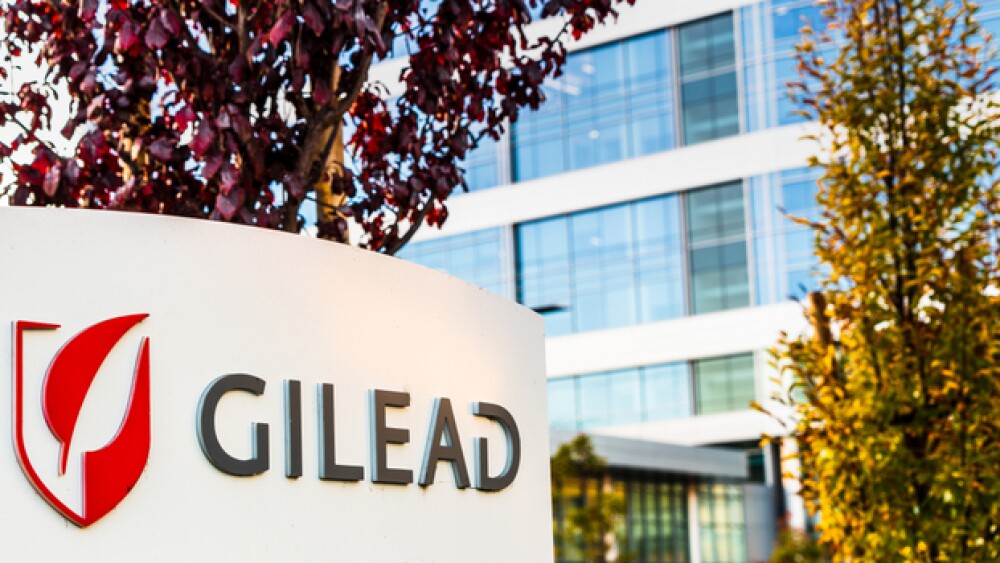Earlier this week, an HIV-prevention advocacy group, PrEP4All Collaboration, filed a petition with the U.S. Patent and Trademark Office (PTO) alleging that Gilead Sciences intentionally delayed the development of a safer HIV drug.
Sundry Photography / Shutterstock
Earlier this week, an HIV-prevention advocacy group, PrEP4All Collaboration, filed a petition with the U.S. Patent and Trademark Office (PTO) alleging that Gilead Sciences intentionally delayed the development of a safer HIV drug.
In 2005, Gilead was developing tenofovir alafenamide (TAF), when the company informed the U.S. Food and Drug Administration (FDA) that it was suspending development of the drug. It did not take up the FDA application again until 2010. The drug is now part of two of Gilead’s combination therapies, Genvoya and Descovy.
Gilead has recently requested the Patent and Trademark Office to expend the TAF patent life for an additional three years. PrEP4All is asking the patent office to reject the request on the basis that Gilead intentionally postponed the development of the drug in order to continue profiting from its older combination HIV drugs, Viread and Truvada, without competition from the newer, safer drug.
Descovy was recently approved by the FDA for use as pre-exposure prophylaxis (PrEP). This is used by men who have sex with other men as well as transgender women and is used to prevent the transmission of HIV. Descovy for this indication was approved on October 3, 2019. The company’s Truvada is also approved for PrEP.
In a related case, in November 2019, the Trump administration, via the Department of Health and Human Services (HHS), filed a lawsuit against Gilead Sciences over Truvada for HIV prevention. The patents are held by the CDC, which partially funded academic research into HIV prevention that was part of the building blocks for Gilead’s Truvada and Descovy. HHS is alleging that Gilead refused a licensing deal despite “multiple attempts” to negotiate one. Gilead argues that the government’s 2015 patent for Truvada is invalid.
According to The Washington Post, PrePs’s latest petition is a mirror of allegations in class-action lawsuits filed in the U.S. District Court in California against Gilead alleging that the delay tactics by Gilead compromised a group of patients’ health.
Gilead, on its part, over the new filing, denies the allegations and said PreP’s petition with the patent office seems to conflict with patent extension laws.
“Patient safety is of foremost importance to us, and any implication that Gilead delayed the development of a drug known to be safer than [the older drug] is false,” said Ryan McKeel, Gilead spokesperson. He noted that Gilead had a 30-year record of “developing and improving upon therapies that address unmet needs.”
Drug companies have recently been attacked by members of Congress and others by using a “patent thicket” to artificially protect and extend the life of bestselling drugs. In the industry, it is known as “life-cycle management.” Once a drug company loses patent protection, generic copies hit the market and the competition drives down prices and profits.
Gilead received its TAF patent in 2010, which is the time it re-initiated the FDA application process. If the PTO grants the extension, Gilead would hold what The Post is calling “monopoly pricing” on the drug until 2025.
In 2018, Gilead reported overall HIV drug sales of $14.6 billion.
“Gilead has not only intentionally delayed clinical development of a drug to artificially manipulate its eligibility for a patent term extension, but it has done so despite the apparent harm to patients,” said Christopher Morten, supervising attorney at New York University’s Technology Policy and Law Clinic, who filed the petition on behalf of PrEP4All.
Not surprisingly in an election cycle, politicians are speaking out on the issues. “This is an example of monopoly abuse,” said Rep. Lloyd Doggett (D-Tex.). Doggett introduced amendments that would require government negotiation of drug prices developed with taxpayer money.
That itself can be a complex issue. An NIH grant, for example, might be considered taxpayer money, that went into early preclinical research. But the millions of dollars and years spent to actually develop that basic research into an approved drug is more likely to be spent by biopharma companies.
Pharmaceutical patent extensions are typically granted by the U.S. PTO based on the period of time the FDA requires to review and approve a drug. Only in extraordinary circumstances are third-party objections such as PrEP4All’s allowed in the reviews, according to FDA regulations.





